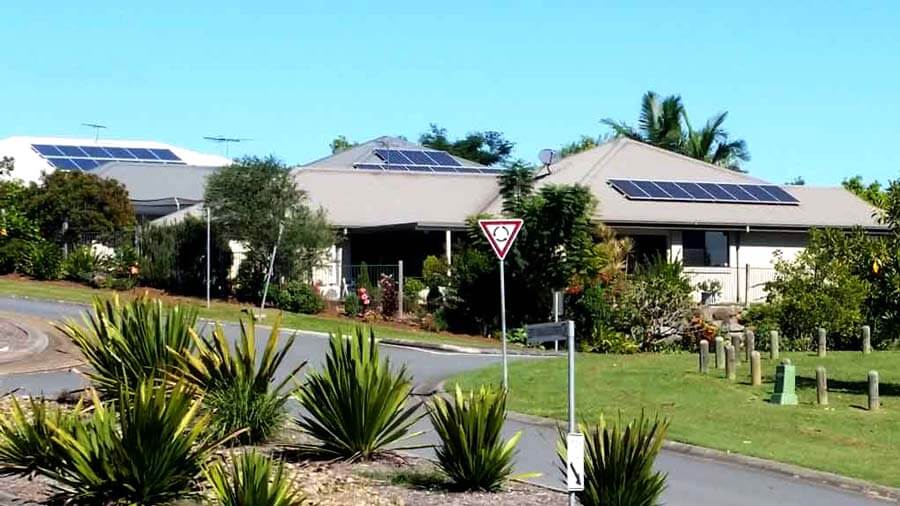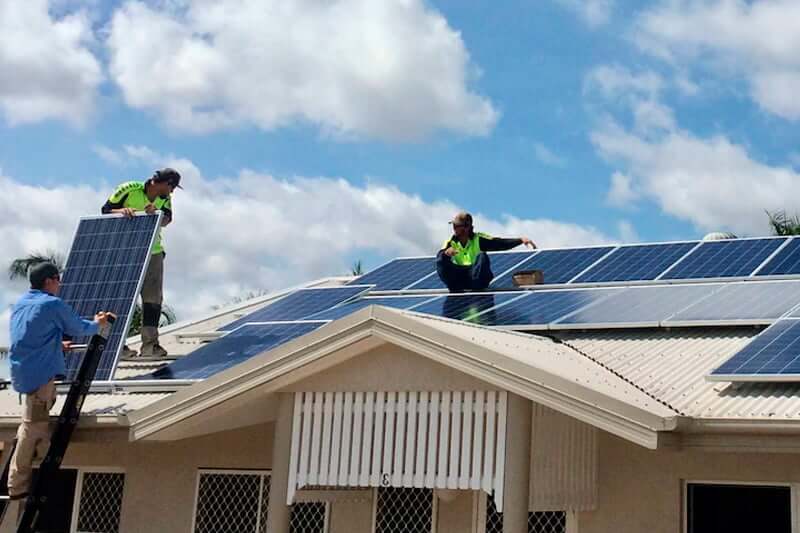Solar Rebates For Renters In QLD
Queensland has the highest adoption of solar power with over 30% of homes installed with rooftop solar. However, there is a significantly large number of households locked out of the solar market. Renters can’t install solar systems in the houses they live in.
The Queensland state government has announced a solar for rentals trial scheme to solve this problem. Over 35% of occupied homes in QLD are rented. Thus, the Queensland government is offering rebates to landlords for installing solar for their tenants.
This is good news for both landlords and tenants within the trial regions. With rising home power bills, most renters will agree to a way to make significant savings. For landlords, a rebate lowers the cost of installing solar in a rental property.

How Do Solar Rebates For Renters Work
Dr. Anthony Lynham on behalf of the Queensland state government announced the beginning of the solar for rentals trial program.
The trial program is targeted at 1000 landlords. The program is valued at $4 million and only applies to landlords from Bundaberg, Gladstone, and Townsville.
The landlords will receive a rebate maximum of $3,500 for every rental property installed with a solar system. For every 3Kw system, landlords will receive a $2,500 rebate, $3,000 for a 4Kw system, and $3,500 for a 5Kw solar power system.
Eligibility For The Solar For Rentals Trial
To be eligible for the trial scheme, landlords must first agree with their tenants to have rooftop solar installed in the house. The agreement is an end and a renewal of the current tenancy lease. Tenants should expect a fair increase in rent for installing solar systems.
To ensure that there’s a fair rent increase. the Queensland government has created a calculator that both landlords and tenants can use. A fair increase in rent should be accompanied by significant savings from the power bill.
Eligible landlords should have their properties located in Bundaberg, Gladstone, and Townsville.
Eligible properties’ rent should not exceed $350 a week.
The trial is limited to 1,000 landlords from the qualifying regions and would last for the financial year ending 30 June 2020 or until 1000 landlords apply for solar system installation.
Property owners meeting the eligibility requirements were encouraged to apply. Installing solar PV systems would ensure that they and their tenants enjoy the same savings enjoyed by many other Queensland residents.

Can landlords charge tenants for solar power?
As a property owner, installing rooftop solar in your rental property is an avenue for increased rental income. It is also a method to make good use of the available roof space.
Landlords can charge their tenants for solar power. However, this has to be in the landlord’s and tenant’s lease agreement.
For a fair charge, the landlord can install a meter to measure how much power their tenants use. Tenants are then charged for the solar power consumed.
This is an advantage to the tenant as the power bills will be significantly lower than when using electricity.
An advantage for the landlord is that they can increase the income from their rental properties as they can charge higher rent amounts. Additionally, landlords will incur very little maintenance expense.
Landlords can seek further information on how to install a solar system with a meter from an accredited solar installer.
Will Landlords Hike Rent Once Solar Panels Are Installed
In the setup of the solar for rentals scheme, the Queensland government expects that there will be a rent increase once solar panels are installed.
Installing solar panels is a cost for landlords that are expected to make the lives of their tenants better. The solar homes program expects that tenants will now reduce their reliance on electricity and use more natural resources for solar power.
With the enhanced convenience, renters can then expect a rent price hike.
Suitable Rental Property To Install Solar Power
Landlords and tenants seeking to benefit from the renters’ program need to consider the state of their properties.
The best rental properties for the program or to install solar in are detached homes. The homes should also have a strong roof that can easily hold rooftop solar panels.
FAQ’s
Is Solar Installation In Rental Property In Queensland Worth It
Installing solar panels in a rental property is worthwhile for many reasons. Not will it attract higher-end renters, but you can charge more, it will increase your property value, and it will pay for itself in under five years.
In addition to the fast payback period of around four to nine years, you can benefit from large rebate discounts and feed-in tariffs. The rebate lowers the cost of purchase and installation.
With plenty of sunshine in Queensland, your system will work at optimum levels and help to eliminate power bills.
Benefits Of The Program To Landlords
Landlords will benefit immensely from entering their properties into the solar energy scheme. First, they will enhance the value of their properties. Thus, they will have more renters attracted to their homes.
Second, due to higher demand, the landlords can benefit from a rent increase that will help cover the average system maintenance costs.
Benefit Of The Program To Tenants
For tenants, the system will help them lower the cost of their power bills. To best enjoy solar, you need to be home during the day. It will help to reduce the electric energy consumption in your home. More energy for consumption and storage is produced when the sun is shining.
The accompanying rent increase is not as significant as the savings made in the energy bill.
What Were The Results Of The Trials Scheme
The target of 1,000 landlords was not achieved. Only 640 landlords presented their homes for the trial. 460 of those were Townsville residents.
A rent increase of about $11 per week resulted in $600 energy savings as a result of lower electricity bills.
Why Did The Scheme Only Trial For One Year
There exist several other Queensland solar incentives for homeowners. One that many landlords and tenants can benefit from is the interest-free loan for the purchase of solar panels. Landlords can use it to enhance the appeal of their properties by getting solar.
Other incentives include government rebates and feed-in tariffs.
Government Efforts In Enhancing The Use Of Renewable Energy
Queensland’s solar industry-government employees are on the frontline providing government services that help in reducing energy consumption. With plenty of sunshine in Queensland, government service is more focused on encouraging increased use of alternative energy sources. Their major focus is on solar power.










